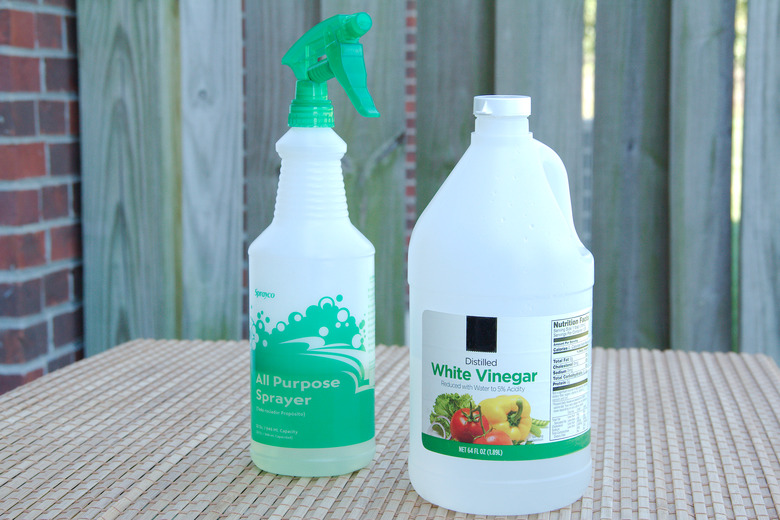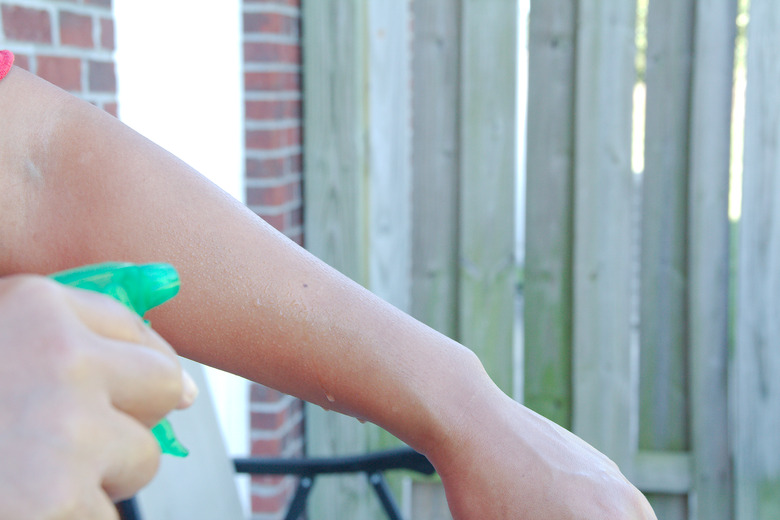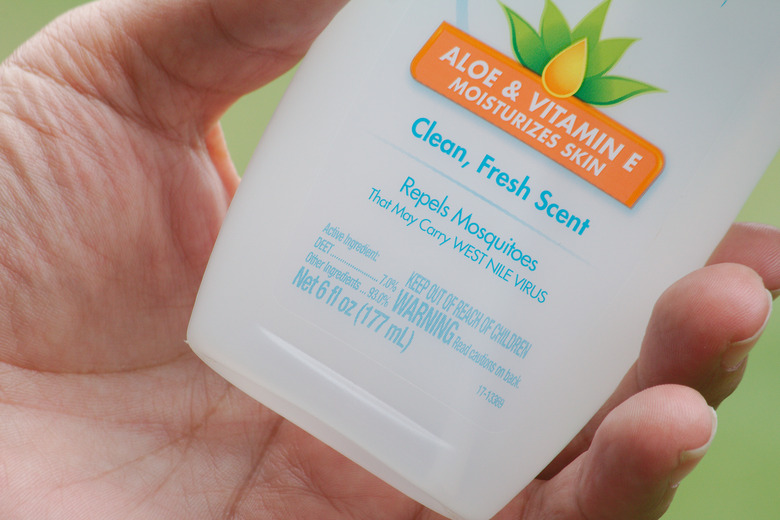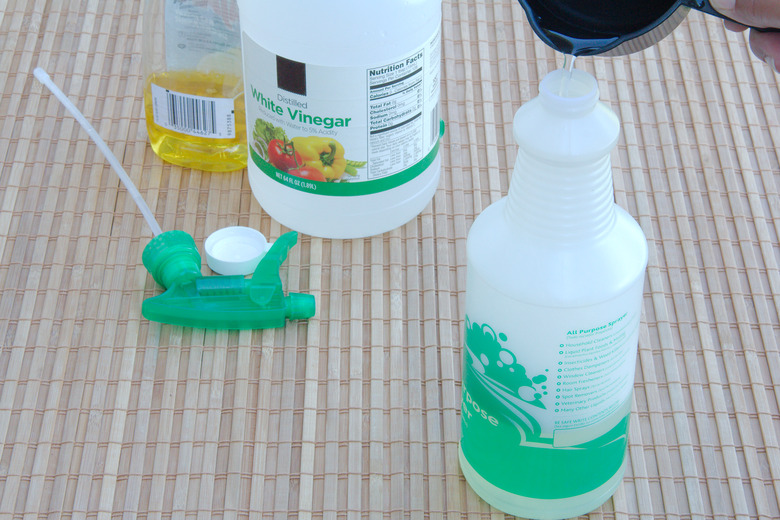Is White Vinegar A Good Bug Repellent?
White vinegar helps repel some bugs on its own and combines well with other ingredients for creating natural bug sprays. Its key ingredient is acetic acid, a naturally occurring acid. Although it can deter some insect pests, it isn't good enough alone or in combination against mosquitoes. Arm yourself with a spray bottle and white vinegar mixtures against a few garden foes and nuisances.
Nix Plant Pests
Nix Plant Pests
A 50-50 white vinegar and water solution repels insects such as midge flies. You can use it on plants and surfaces, such as patio tables and outdoor bar counters. Because of its acidity, always dilute white vinegar before spraying it on plants. Straight vinegar may damage or kill plants. This nontoxic repellent also irritates ants. If you have problem ants in your garden, spray the diluted vinegar on ant trails and anthills.
Make Nuisances Buzz Off
Make Nuisances Buzz Off
Make yourself unattractive to nuisance insects when you're gardening with the same 50-50 white vinegar and water solution. Pour the white vinegar and water mixture into a clean spray bottle and mist your exposed skin with it. Always label homemade insect repellents and keep them out of the reach of children.
Bug the Mosquitoes
Bug the Mosquitoes
White vinegar alone isn't enough to ward off mosquitoes. Because mosquitoes can transmit West Nile virus and other diseases, you need a more effective repellent. Use a commercial insect repellant that contains DEET as its active ingredient to keep mosquitoes off you while you're outside.
Improve Your Arsenal
Improve Your Arsenal
White vinegar blasts bugs on plants as an ingredient in a homemade soap spray. Mix 3 cups water and 1 cup vinegar in a spray bottle and add 1 teaspoon of dish soap. Spray it on plants, including trees and shrubs, to get rid of pests. Direct the spray at the underside of the leaves to make contact with whitefly eggs. The white vinegar odor is a bonus when you're battling insects sensitive to scent, such as ants.




